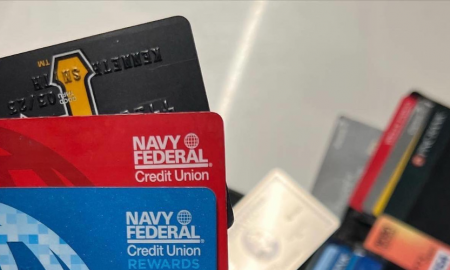
Factors to Be Aware of Before You Decide to Have Your Home Refinanced

There’s a lot to consider before taking that step to refinance your home. According to Winnie Sun, a financial advisor, a majority of homeowners tend to focus on home appreciation and interest rates when contemplating taking this option.
In fact, if the value of your house has soared exponentially, but still has relatively high-interest rates from the first time that you moved in, it would be wise for you to not refinance.
However, Sun says that there are other individuals who will see this opportunity as an opportunity to redirect some of the cash as part of their budget. However, Sun advises that before taking that step, one should contemplate whether or not it is the wisest step to take.
As initially stated, there are quite a number of factors that need to be considered before an individual takes that step to refinance their mortgage. Here are some of the most important factors.

Refinancing your home is one of the options most individuals use to redirect some extra income their way
Home Equity
The first qualification that an individual will need to address is whether they have equity in their home. The silver lining is that the value of houses has been on the rise lately, with the number of underwater homeowners rapidly decreasing.
That being said, not all homes have gotten to their value, thus leaving some owners with relatively low equity.
The main problem with refinancing having no equity (or very little of it) is that it is not always a reality when dealing with conventional lenders, however, some government programs have been started to cater to this.
That being said, homeowners having a minimum of 20% equity stand a higher chance of qualifying for a loan.
Credit Score
In recent years, a majority of lenders have been more stringent with their loan approvals, leaving some consumers utterly surprised when they discover that they are not eligible to qualify for low-interest rates, despite having relatively great credit.
Nowadays, the most common lenders around like potential loaners to have a credit score higher than 760 to be eligible for low mortgage interest rates.
That being said, borrowers with low credit scores might still obtain a new loan, but with much higher fees.

Having a great credit score is quintessential in helping you secure a home loan
Debt-to-Income Ratio
If you have once gotten a mortgage loan, or currently have one, you might assume that it can be simpler for you to apply and easily get a new one, right?
Not exactly.
In fact, lenders have also become more stringent with debt to income ratios as they have been with credit scores. Even though factors such as substantial savings, a stable job history, and a high income play a vital role, most lenders are looking to keep monthly housing payments below 28% of the gross income that you rake in every month.
Indeed, this would mean that your average debt to income should be about 36% or favorably less, although there are some lenders out there who are willing to parlay at 43%
Refinancing Costs
In most cases, refinancing a home costs about 5% of the total loan amount. However, you as a borrower can find smart ways of minimizing this cost, and potentially wrapping them as part of the loan.
Additionally, if you have good equity, then you can have the costs rolled over into your new loan, thus increasing its principal.
In some cases, other lenders normally provide a ‘zero cost’ refinance loan, which simply translates to you having to pay higher interest to cover the costs.

A majority of loaners prefer to have the refinancing cost wrapped around as part of the home loan they have taken
Points
When you are searching for a variety of mortgage options and offers, it is important that you analyze both rates, as well as points. In most cases, points are equated to 1% of the total loan amount that you have, and are normally paid to minimize the interest rate.
To make things much easier for you, make sure you calculate the total amount that you will pay in terms of points for each of these loans, because most of these will be part of the principal of the new loan that you will get.
Private Mortgage Insurance (PMI)
One of the benefits of having a 20% or higher equity when refinancing is that it protects you from paying a PMI. However, for those under 20%, they will have to pay a PMI together with their current loan.
Unfortunately, some homeowners paying a PMI have had their homes record significant decreases in terms of values for having to pay PMI. Hence to be on the safe side, it is advisable to get a financial analysts opinion on whether to pay PMI when refinancing or not.
More in Loans & Mortgages
-
Ashton Kutcher’s Lucrative Business Ventures
Ashton Kutcher, a name that resonates with the silver screen’s allure, has emerged as a master of diverse talents, not confined...
December 8, 2023 -
Why American Consumers Are Falling Behind on COVID-Era Debt
When the world was grappling with the health crisis brought on by COVID-19, the U.S. economy faced an equally formidable challenge:...
November 27, 2023 -
Dr Dre and Ex-Wife Nicole Young Finalise $100m Divorce Settlement
After months of legal proceedings, Dr Dre, the legendary rapper, producer, and businessman, officially brought his tumultuous divorce from ex-wife Nicole...
November 22, 2023 -
5 Tell-Tale Signs That It Is Time to Say Goodbye to Your Current Job
Are you feeling like your job is more like a ball and chain than a fulfilling career? The daily grind, the...
November 19, 2023 -
WWE Signs $1.4 Billion Broadcasting Contract for SmackDown
In an explosive turn of events, World Wrestling Entertainment (WWE) has just unleashed some earth-shattering news for its legions of fans....
November 9, 2023 -
Navigating the Mortgage Maze as Interest Rates Take a Historic Leap
The U.S. housing market is nothing short of a dynamic entity. It evolves, reacts, and sometimes, just like the current real-estate...
November 3, 2023 -
Celebrity Couples Where the Woman Has a Higher Net Worth
In a world where gender roles and financial dynamics constantly shift, it’s not unusual to find celebrity couples where the woman...
October 27, 2023 -
Why the Gender Pay Gap Could Be Worsening
Picture this: Two college students, Alex and Charlie. Both are bright, have the same interests, and are ready to embrace the...
October 19, 2023 -
JC Penney’s Remarkable $1 Billion Revival Plan
In a remarkable turnaround, JC Penney unveiled a bold $1 billion revival plan, breathing new life into a brand that faced...
October 12, 2023















You must be logged in to post a comment Login